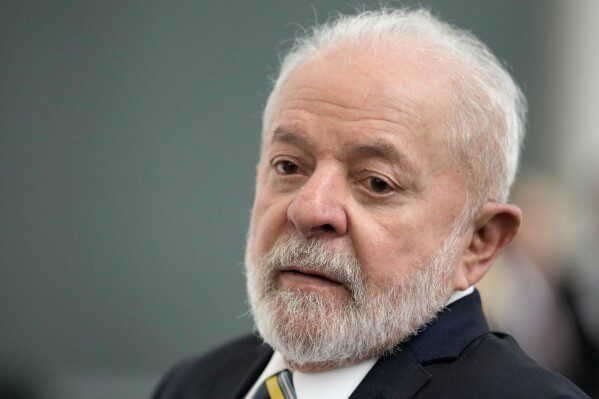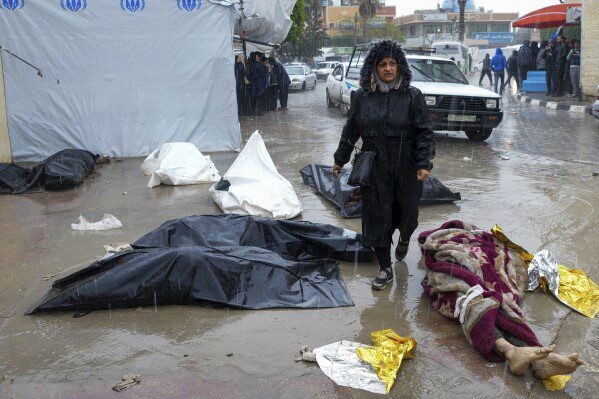The Hague, Netherlands (AFP) – Historical Hearings began on Monday at the UN Supreme Court In the legitimacy of Israel's 57-year-long occupation of the lands it seeks to establish a Palestinian state.
The hearings are scheduled to last six days before the International Court of Justice. Monday's session began with Foreign Minister Riyad al-Maliki, who spoke as a representative of the Palestinians. The hearings follow a request by the UN General Assembly to issue a non-binding advisory opinion on Israel's policies in the occupied territories.
Although the case begins in the court's Great Hall of Justice against the backdrop of the war between Israel and Hamas, it instead focuses on Israel's open control over the occupied West Bank, Gaza Strip and annexed East Jerusalem.
The Palestinian legal team is expected to tell the panel of international judges that Israel violated the ban on territorial invasion by annexing large areas of occupied territory and the right of Palestinians to self-determination, and imposed a system of racial discrimination and apartheid.
Omar Awadallah, head of the United Nations Organizations Department at the Palestinian Ministry of Foreign Affairs, said: “We want to hear new words from the court.”
After the Palestinians address the court on Monday, an unprecedented number of 51 countries and three international organizations will speak. The court is likely to take months to issue its opinion.
Israel is not scheduled to speak during the sessions, but may provide a written statement.
Yuval Shani, a law professor at Hebrew University and a senior fellow at the Israel Democracy Institute, said Israel would likely justify the continued occupation on security grounds, especially in the absence of a peace agreement.
This likely refers to the October 7 attack in which Hamas-led militants from Gaza killed 1,200 people in southern Israel and dragged 250 hostages to the Strip.
However, the Palestinians and Prominent human rights groups say the occupation goes much further Defensive measures. They say it has turned into an apartheid regime, supported by the construction of settlements on occupied land, that gives Palestinians second-class status and aims to maintain Jewish dominance from the Jordan River to the Mediterranean. Israel rejects any accusation of apartheid.
Israel occupied the West Bank, East Jerusalem and the Gaza Strip in the 1967 Middle East War. The Palestinians seek to establish an independent state in the three regions. Israel considers the West Bank a disputed area whose future should be determined through negotiations.
It has built 146 settlements across the West Bank, according to Peace Now, many of which resemble fully developed suburbs and small towns. More than 500,000 Jewish settlers live in the settlements, while about 3 million Palestinians live in the region.
Israel annexed East Jerusalem and considers the entire city its capital. An additional 200,000 Israelis live in the settlements built in East Jerusalem, which Israel considers its capital neighborhoods. The city's Palestinian residents face systematic discriminationThis makes it difficult for them to build new homes or expand existing ones.
Israel withdrew all its soldiers and settlers from Gaza in 2005, but continued to control the Strip's airspace, coastal strip, and population registry. Israel and Egypt imposed a blockade on Gaza when the Palestinian Hamas movement seized power there in 2007.
The international community overwhelmingly considers the settlements illegal. Israel's annexation of East Jerusalem, home to the city's most sensitive holy sites, is not internationally recognized.
This is not the first time the court has been asked to issue an advisory opinion on Israeli policies.
In 2004, she said that the separation wall built by Israel across East Jerusalem and parts of the West Bank was “contrary to international law.” It also called on Israel to stop construction work immediately. Israel ignored this ruling.
Also late last month, the court ordered Israel to do everything in its power to prevent death, destruction and anything else Acts of genocide in its campaign in Gaza. This order came at the initial stage of a case brought by South Africa accusing Israel of committing genocide, a charge Israel denied.
South Africa's ruling party, the African National Congress, has long compared Israel's policies in Gaza and the West Bank to South Africa's white-minority apartheid system, which restricted most blacks to their “homelands” before ending in 1994.
___
Find more AP coverage at https://apnews.com/hub/israel-hamas-war

“Infuriatingly humble alcohol fanatic. Unapologetic beer practitioner. Analyst.”


